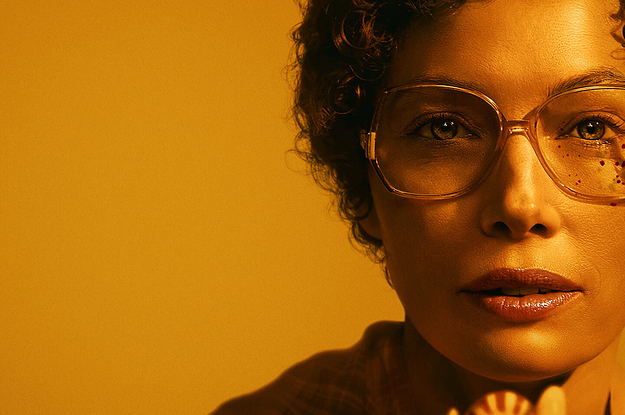
Candy’s portrayal in the series reflects how the trial unfolded in real life. In court, Candy’s defense attorney, Don Crowder, called witnesses who described his client as a loving and social mother, unlike Betty, who was “indifferent” and “prone to depression”. The women’s pastor testified that he found Betty difficult, while Candy was friendly. So it was apparently not exaggerated for the jurors to imagine that Candy was really the victim of all this sordid affair.
In Candy’s court testimony, which is dramatized on the show, Betty had somehow found out about the affair (Allan said he didn’t know if his wife knew anything about it). Candy said that when she arrived at Betty’s house that day, Betty confronted her about cheating, told her she had to kill her, and rushed at her with an axe. Afterwards, Candy testified that she went into a dissociative state as she fought for her life (Candy blamed her reaction on childhood trauma, which she remembered after sessions with a hypnotist).
“When Betty Gore came to Candy Montgomery, she was no longer a human being – she was an animal,” Crowder told the jury, both in real life and on screen.
History is written by the victors, and in this case, Betty and Candy’s tale was determined by the woman who survived their deadly encounter. The press covered Candy favorably before she disappeared from public view. In a dispatch written after her acquittal, Candy told the reporter, as she had champagne and cake at a “little victory party” at her home, that she had received constant support from her friends and of his family during and after the trial. (She also told the reporter she “wasn’t dangerous” after opening the door with a knife in her hand.)
This instinct to center Candy in the story rather than Betty or Betty’s family continued into Candy. Before watching the show, I read the Texas Monthly series, but was surprised to find that there was little other information publicly available. The murder had not been covered by true crime blogs or dissected on Websleuths; there was no “Candy” podcast. In order to find coverage of the murder and the trial, I had to search newspaper archives and read old reports from 1980. With its publication, amateur sleuths are likely to skim through old news articles as I have did, speculating if Candy had run away. of murder or if Betty really charged her with an axe. A new audience will learn the name Betty Gore in a negative light.
Watching the show, I kept wondering who it was for. No one is asking the courts to revive or reopen the case; Candy is alive but cannot be retried for the same crime. There are no mysteries to be solved here, no bodies or suspects to be found. I couldn’t find Candy, but I can’t imagine her being too thrilled with the publicity. The Gore family member told me that Betty’s two adult children grew up happy and successful, and turned down numerous requests over the years to appear on real crime shows interested in featuring their mother’s case. The family is upset that all of this is being unearthed, and their family trauma will once again be in the spotlight.
“It’s one thing for shows like Deadline making a fuss with family involvement and input, but that goes too far,” they said.
So why bring crime back into the public eye now? The answer is quite simple. The show is for us: the viewers who fuel the massive true-crime industrial complex, demanding juicier, more shocking cases for our consumption. If the story is good, it doesn’t matter that Betty’s children will now have to relive their childhood tragedy when they never sought anything but intimacy. It doesn’t matter if Betty was really as obnoxious as the show makes her seem, if Candy was as innocent as it makes her seem, or what really happened that day; what matters is that we will watch.
At the end of Candy, Candy testifies to her last meeting with Betty. At the back of the courtroom, Betty appears. She looked under her pageboy haircut, silently judging Candy’s version of events. What is she thinking? That Candy is wrong? Or that she wished she had killed Candy instead?
We’ll never know because Betty never explains. As the jury announces that they have found Candy not guilty, Betty just looks distraught, then fades away. She never manages to tell us her side of the story. ●